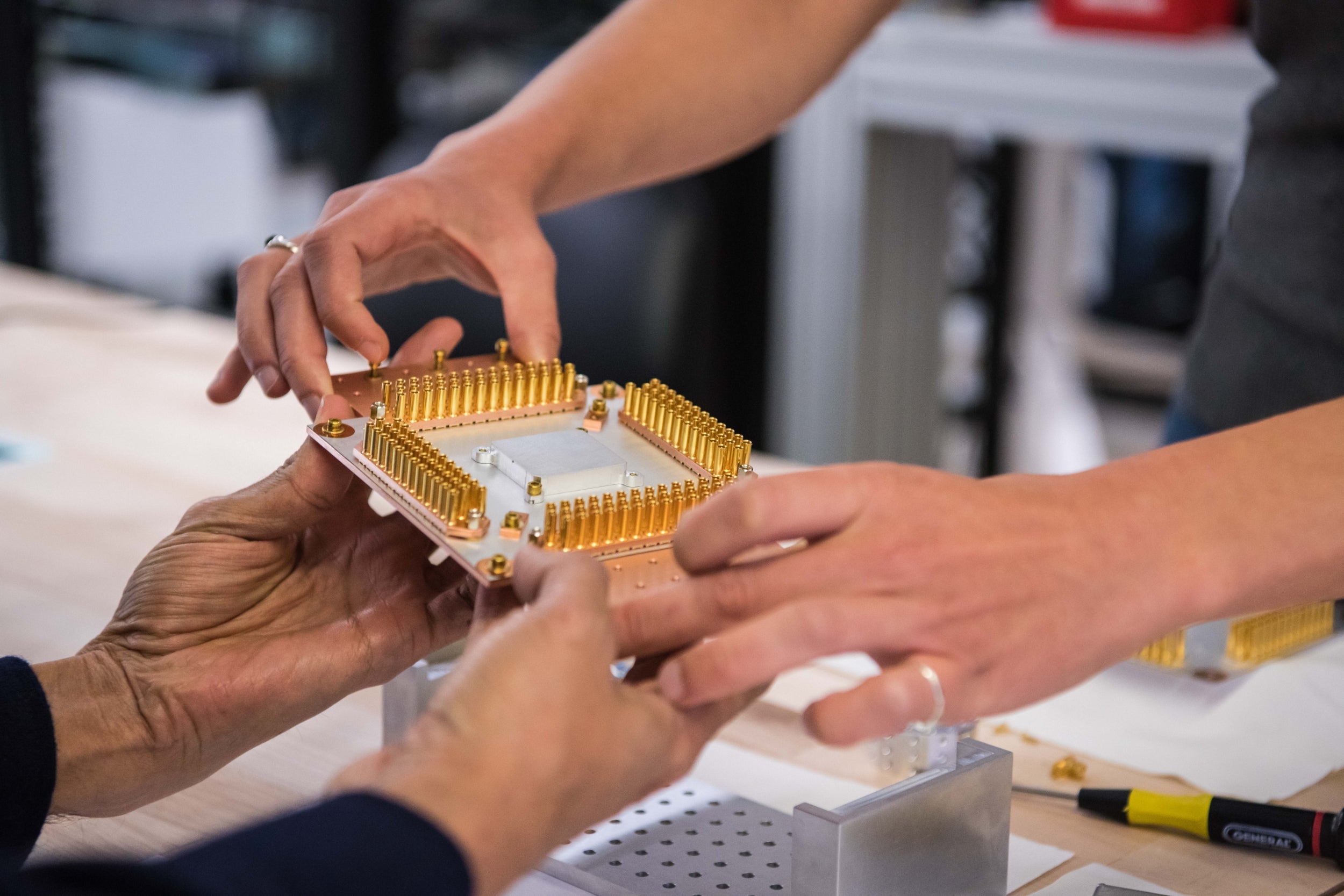The Independent's journalism is supported by our readers. When you purchase through links on our site, we may earn commission.
Future of quantum computing could be disrupted by space radiation, experts warn
Promised powerful devices will not come unless we find a way to protect them from space radiation, study finds

The promise of quantum computing could be undermined by cosmic rays, a major new study has warned.
In recent years, many experts have suggested that quantum computers could lead to a whole host of breakthroughs, and billions have already been spent on fulfilling that promise. By allowing for a speed and complexity of computation that would be impossible on traditional devices, such technology could fundamentally change scientific research and other fields, its proponents have suggested.
But those breakthroughs might be held back by radiation coming from space as well as from the concrete walls that surround us, according to a major new study published in Nature today. If quantum computers cannot be successfully shielded from that space radiation, they might never be able to reach the kind of performance that experts have long hoped for.
In the study, researchers were able to find a previously mysterious source of interference that limited the performance of quantum bits, or qubits, the basic piece of information from which more complex quantum computers are assembled. They found those qubits were being affected by radiation from natural sources in the environment, which degrades their performance and undermines the operation of quantum computers.
"Our study is the first to show clearly that low-level ionizing radiation in the environment degrades the performance of superconducting qubits," said John Orrell, a PNNL research physicist, senior author of the study and expert in low-level radiation measurement. "These findings suggest that radiation shielding will be necessary to attain long-sought performance in quantum computers of this design."
Without finding a way to protect against that radiation, the development of quantum computers could run into a wall in just a few years, the researchers warn.
Quantum computers depend on qubits being able to stay in operation without losing their information, which happens through a process called decoherence. In recent years, researchers have been increasing that metric, with superconducting qubits lasting for just one nanosecond in 1999 compared with about 200 microseconds today.
But the low-level radiation threatens to limit those computers just a few miliseconds, the researchers warn. At the current swift level of improvement, researchers will soon run into that minimum limit, and so must find a way to protect the qubits from the radiation or find themselves unable to improve the quantum computers' performance.
"These decoherence mechanisms are like an onion, and we've been peeling back the layers for past 20 years, but there's another layer that left unabated is going to limit us in a couple years, which is environmental radiation," says William Oliver, associate professor of electrical engineering and computer science and Lincoln Laboratory Fellow at MIT.
"This is an exciting result, because it motivates us to think of other ways to design qubits to get around this problem."
Engineers have long known that traditional computers can be vulnerable to this kind of low-level radiation, which comes both from the materials that surround us such as concrete as well as from space and through our atmosphere. But those digital computers are largely able to operate despite it – whereas quantum computers are much more sensitive to the radiation's effect.
"We found that practical quantum computing with these devices will not be possible unless we address the radiation issue," said PNNL physicist Brent VanDevender, a co-investigator on the study.
The find whether that radiation was causing the problems with decoherence experienced by researchers, they measured how a qubit performed in two different conditions. In the first, they exposed them to elevated radiation from copper metal that had been activated in a reactor, and in the other they built a shield around them, protecting them from the natural radiation that would hit them from the environment.
They found that in both experiments the qubits lost their coherence more quickly the higher the amount of radiation they were exposed to. As such, the experiment proved that the sensitive qubits were unable to withstand the radiation.
"The radiation breaks apart matched pairs of electrons that typically carry electric current without resistance in a superconductor," said VanDevender. "The resistance of those unpaired electrons destroys the delicately prepared state of a qubit."
Radiation exposure is far from the biggest problem for the stability of qubits for the time being. At the moment, the problem of decoherence is much more related to other issues, such as tiny defects or impurities in the materials used to build the computers, which are currently limited to around a tenth of a milisecond.
But those behind the new study warn that quantum computers should be designed with the awareness of this growing problem in mind. That might require ensuring that earlier and experimental quantum computers are built out of materials that do not emit radiation, for instnace, and shielding them from radiation in the atmosphere – perhaps by building them underground.
The research, 'Impact of ionizing radiation on superconducting qubit coherence', is published in Nature.
Join our commenting forum
Join thought-provoking conversations, follow other Independent readers and see their replies
Comments
Bookmark popover
Removed from bookmarks